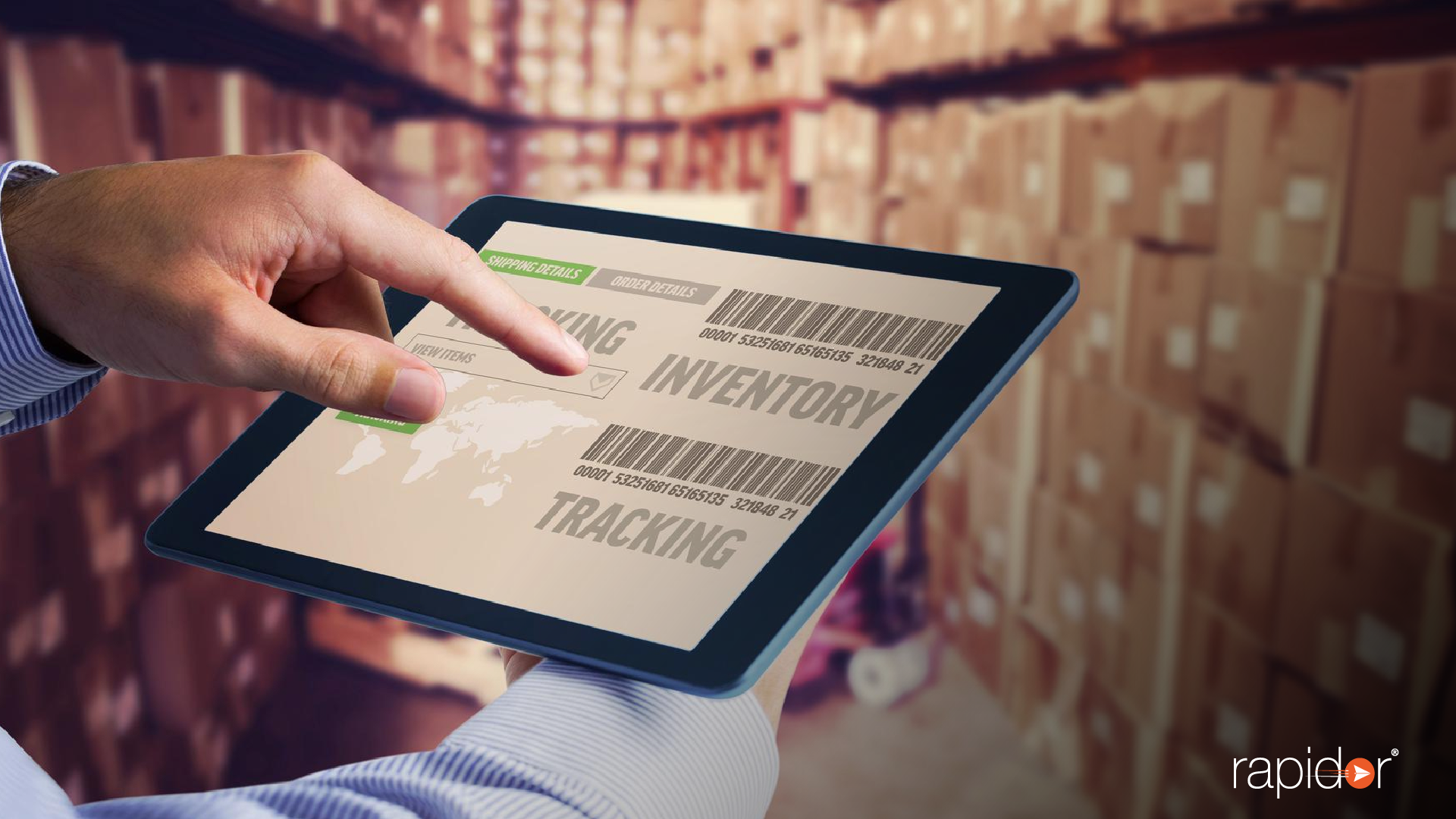The FMCG sector in India has been thriving due to consumer-driven growth and rising disposable income. With FMCG sales projected to grow at 7-9% in 2022-23, the sector faces challenges in manufacturing, distribution, and communication. Production management software offers a solution to improve operational efficiency, adapt to market trends, and enhance real-time monitoring and data analytics. As the industry evolves, embracing technology becomes crucial for sustained growth and meeting consumer demands in this fast-paced sector.

The Challenge
The FMCG sector faces challenges in proper retail execution, sales automation, and catering to diverse age groups. Ensuring effective retail execution is vital for maximizing sales, as poor execution can result in lost revenue and missed opportunities. Embracing sales automation is essential for optimizing field teams and reducing manual processes. Balancing brand appeal for both older and younger consumers requires strategic adaptation and continuous evolution.
The Solution
To address challenges, FMCG brands can leverage production management software tailored to their specific needs. Real-time monitoring and data analytics improve retail execution, enabling better shelf merchandising, order replenishment, and trade promotions. Sales automation streamlines field teams and enhances productivity. Catering to diverse age groups involves simplifying products for senior citizens while remaining digitally appealing to millennials. Embracing sustainable practices and eco-friendly initiatives is vital to staying relevant and responsible in the industry.
Understanding FMCG Production: A Brief
Characteristics of FMCG Production
FMCG production involves high-speed, mass production of goods with short shelf lives and frequent turnover. Demand variability is common due to seasonal trends, marketing campaigns, and consumer preferences. Products often require complex packaging and labeling for retail display. The production process must be agile and flexible to meet fluctuating demands and ensure a steady supply chain.
Key Operational Challenges
FMCG production faces challenges in demand forecasting, inventory management, and distribution coordination. Accurate demand predictions are crucial to avoid stockouts or excess inventory. Effective inventory management is essential to minimize carrying costs while meeting consumer demands. Coordinating distribution channels for timely delivery requires efficient communication and logistics to avoid bottlenecks and ensure products reach the market on time.

The Importance of Efficiency
Efficiency is paramount in FMCG production to optimize resources, reduce costs, and maintain competitiveness. Streamlined production processes lead to faster turnaround times, allowing businesses to capitalize on market trends and seize opportunities. Efficient inventory management prevents wastage and improves cash flow. Agile production and distribution systems enhance responsiveness to changing demands, enabling businesses to meet customer expectations promptly. Production management software plays a pivotal role in achieving and sustaining efficiency throughout the FMCG production cycle.
What is Production Management Software?
Definition and Key Features
Production Management Software (PMS) is a digital solution that optimizes and automates various aspects of the production process in the FMCG sector. It encompasses real-time tracking, data analytics, production planning, inventory management, and supply chain coordination. Key features include predictive analysis, demand forecasting, order automation, and centralized communication platforms. PMS ensures seamless collaboration between stakeholders, enhances operational efficiency, and empowers businesses to make data-driven decisions for streamlined production and improved overall performance.
The Evolution of Software in Production
The FMCG sector has witnessed a transformative shift in production software. From basic inventory systems, the evolution has led to sophisticated Production Management Software powered by artificial intelligence (AI) and Internet of Things (IoT) integration. Advanced PMS offers real-time insights, predictive maintenance, and automation, revolutionizing production processes. Cloud-based solutions have increased scalability and accessibility, enabling businesses to adapt to changing market demands. The integration of technology in FMCG production has accelerated growth, efficiency, and sustainability in the industry.
Key Benefits for FMCG Sector
Production Management Software brings significant advantages to the FMCG sector. Customized solutions cater to unique production needs, enhancing adaptability and flexibility. The software’s real-time tracking and analytics provide actionable insights, enabling proactive decision-making and reducing operational errors. Improved production planning and demand forecasting optimize inventory management, reducing waste and minimizing stockouts. Scalable solutions accommodate business growth, and the integration of advanced technologies empowers FMCG businesses to stay competitive, meet customer demands, and achieve higher ROI.
Delving Deep: How Production Management Software Addresses FMCG Challenges
Real-time Monitoring & Data Analytics
Tracking Production Cycles
Production Management Software enables minute-by-minute monitoring of production cycles, providing real-time insights into workflow efficiency, resource utilization, and potential bottlenecks. This ensures timely identification and resolution of issues, optimizing production output.
Predictive Analysis
By leveraging historical and real-time data, the software facilitates predictive analysis, anticipating potential disruptions and production inefficiencies. It helps FMCG businesses proactively adjust production schedules and resources, ensuring seamless operations and meeting dynamic market demands.
Inventory Oversight
Production Management Software enables precise inventory tracking, minimizing wastage and stock-outs. Businesses gain a comprehensive view of inventory levels, aiding in demand fulfillment and maintaining optimal stock levels for efficient production.

Demand Forecasting & Production Planning
Historical Data Utilization
Production Management Software utilizes historical sales data to forecast future demand accurately. This empowers businesses to anticipate market trends, identify seasonal patterns, and optimize production schedules for maximizing sales potential.
Integrating External Factors
The software incorporates external factors such as market trends, seasons, and geopolitical events into demand forecasting and production planning. By considering these variables, FMCG companies can adapt their production processes to meet changing consumer demands effectively.
Agile Production Schedules
Production Management Software allows agile production scheduling to respond promptly to real-time demand fluctuations. Businesses can adjust production volumes and priorities swiftly, avoiding overproduction and minimizing excess inventory.
Streamlining Supplier & Distributor Communication
Centralized Communication Platforms
Production Management Software offers centralized platforms for efficient communication with suppliers and distributors. This streamlines information exchange, order processing, and issue resolution, fostering better collaboration and reducing delays in the supply chain.
Automated Order Systems
The software facilitates automated order processing, enabling instant order placement and tracking. This ensures timely fulfillment and delivery, enhancing supply chain efficiency and minimizing order processing errors.
Transparent & Efficient Feedback Loops
Through transparent communication channels, FMCG businesses can obtain feedback from suppliers and distributors on product quality and delivery performance. This feedback loop aids in maintaining product consistency and strengthening relationships with stakeholders.
Practical Applications: Example Use Case
Example Use Case: Optimizing Production Efficiency
In an FMCG company, implementing Production Management Software led to significant improvements in production efficiency. Real-time monitoring and data analytics allowed minute-by-minute tracking of production cycles. By analyzing this data, the company identified inefficiencies in the production line, leading to timely adjustments and increased productivity.
The software’s predictive analysis helped anticipate potential disruptions in the supply chain and production process, enabling proactive measures to avoid delays and stock-outs. With precise inventory oversight, the company reduced wastage and optimized stock levels, resulting in cost savings.

Demand forecasting and production planning based on historical data and external factors ensured that the company could meet changing market demands effectively. Agile production scheduling enabled them to adapt quickly to unexpected fluctuations in demand.
Moreover, the centralized communication platform facilitated seamless collaboration with suppliers and distributors. Automated order systems streamlined the order processing, reducing lead times and enhancing customer satisfaction.
Overall, the implementation of Production Management Software enabled the company to achieve higher production efficiency, reduce operational costs, and stay competitive in the fast-paced FMCG sector.
Example Use Case: Enhancing Supply Chain Coordination
A leading FMCG brand faced challenges in supply chain coordination due to its vast distribution network. By adopting Production Management Software, the company achieved significant improvements in their supply chain operations.
The real-time monitoring and data analytics capabilities provided comprehensive insights into the supply chain’s performance. The company could identify bottlenecks and optimize logistics, leading to faster and more efficient product deliveries.
With predictive analysis, the brand anticipated demand fluctuations and optimized inventory levels at various locations. This resulted in reduced inventory carrying costs while ensuring sufficient stock availability at all times.
The software’s demand forecasting and production planning modules enabled the company to align production schedules with demand forecasts. As a result, they avoided stockouts and overproduction, achieving better inventory management.
Centralized communication platforms streamlined interactions with suppliers and distributors, facilitating quicker decision-making and issue resolution. Automated order systems expedited the order-to-delivery process, enhancing customer satisfaction and loyalty.
By leveraging Production Management Software, the FMCG brand enhanced supply chain coordination, improved operational efficiency, and elevated overall performance in the competitive market.
Choosing the Right Software for FMCG: A Buyer’s Guide
Customization Capabilities
Look for Production Management Software that offers customization to match your FMCG business’s unique requirements. Tailored solutions ensure seamless integration with existing workflows and optimize the software’s functionality for efficient production planning, demand forecasting, and inventory management.
Scalability
Select software that can scale with your business growth. As your FMCG company expands, the Production Management Software should accommodate increased production volumes, additional users, and evolving market demands without compromising performance or efficiency.
User-Friendliness
Choose a user-friendly interface that simplifies software adoption and training for your team. An intuitive platform reduces the learning curve, enabling swift implementation and widespread utilization throughout the organization.
Integration with Existing Systems
Ensure the chosen software can seamlessly integrate with your existing systems, such as ERP, CRM, and supply chain management tools. Smooth integration streamlines data flow, eliminates redundant tasks, and enhances overall operational efficiency across all departments.
Cost-Benefit Analysis
Conduct a comprehensive cost-benefit analysis to assess the software’s value proposition. Consider both upfront expenses and long-term ROI potential. Choose software that offers substantial benefits, such as increased production efficiency, reduced wastage, improved inventory management, and enhanced supply chain coordination, outweighing the initial investment and ongoing maintenance costs. Prioritize software that aligns with your FMCG business’s growth and sustainability goals.
Overcoming Implementation Challenges
Employee Training
Proper employee training is essential for successful implementation. Provide comprehensive training sessions to familiarize the workforce with the Production Management Software. Training should cover all features, functions, and best practices for efficient utilization. Regular refresher courses can reinforce knowledge and ensure continuous optimization.
Continuous Updates & Adaptation
Stay abreast of software updates and new features to maximize benefits. Continuous adaptation to the latest software capabilities ensures your FMCG business remains at the forefront of efficiency and innovation. Encourage feedback from users to address challenges and make necessary adjustments to optimize the software’s performance.
Seeking Support
Seek assistance from the software provider during implementation and beyond. Reliable support ensures smooth integration and swift issue resolution. Rely on the vendor’s expertise and resources to address any technical or operational challenges, enabling your FMCG business to fully leverage the potential of the Production Management Software.
The Future: Trends in Production Management Software for FMCG
AI and Machine Learning
AI and Machine Learning will revolutionize Production Management Software in the FMCG sector. These technologies will enhance predictive analytics, enabling accurate demand forecasting and production planning. Real-time data analysis will optimize production cycles, resource allocation, and supply chain coordination. AI-powered insights will empower businesses to make data-driven decisions, boost efficiency, and adapt rapidly to dynamic market demands.

Internet of Things (IoT) Integration
IoT integration will enable a smart and connected FMCG production ecosystem. IoT sensors will collect real-time data from production lines, machines, and inventory, enhancing monitoring and visibility. Data-driven insights will streamline processes, automate maintenance, and reduce downtime. IoT-enabled tracking will optimize logistics, ensuring timely deliveries. The seamless synergy of IoT and Production Management Software will elevate production efficiency and competitiveness.
Sustainability
Sustainability will be a core focus of Production Management Software for FMCG companies. Software will incorporate eco-friendly practices, such as waste reduction, energy-efficient production, and sustainable sourcing. Tools will enable companies to measure and reduce their carbon footprint, aligning with global sustainability goals. Ethical and socially responsible practices will drive consumer loyalty and brand reputation. Sustainability-driven Production Management Software will be instrumental in fostering environmentally conscious FMCG production and contributing to a greener and more sustainable future.
Conclusion
Emphasizing the Need
In the fast-paced and competitive FMCG sector, Production Management Software emerges as a critical enabler for efficiency, agility, and sustainable growth. Real-time monitoring, data analytics, and demand forecasting enhance operational excellence, while streamlined communication and integration optimize supply chain coordination. The software empowers FMCG businesses to overcome challenges and thrive in a rapidly evolving market landscape.
A Call to Action
As the FMCG industry continues to grow, embracing Production Management Software becomes indispensable for sustained success. To stay ahead in the dynamic market, FMCG companies must prioritize customization, scalability, and user-friendliness when selecting the right software. Additionally, harnessing AI, IoT, and sustainability trends will future-proof production processes. Embrace technology, invest wisely, and seize the opportunity to transform your FMCG business into an efficient, agile, and sustainable industry leader.


